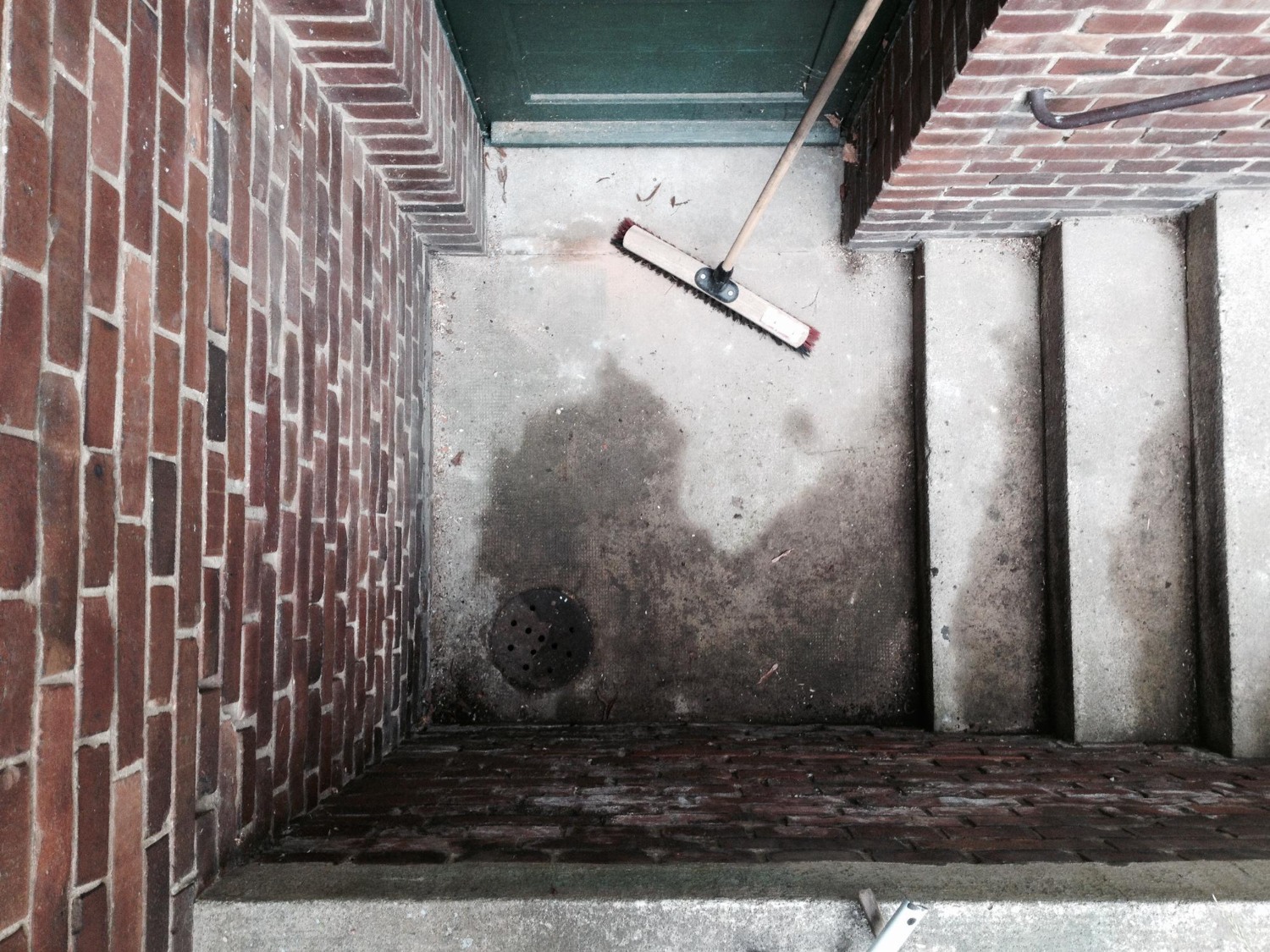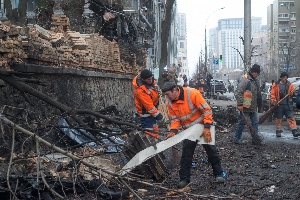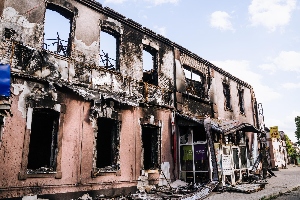Let’s face it, basement damp in Indianapolis is more than just a minor issue. It can trigger water damage, mold, and even foundation trouble that nobody wants to pay for.
Understanding the root causes of basement moisture and taking quick action can save you money and protect your family's health.
Indianapolis homeowners face unique challenges with basement dampness because of our unpredictable climate and clay-heavy soil. Most basements are built into the ground, which makes it all too easy for moisture to sneak inside.
The upside? Many basement damp problems can be caught early and fixed before they spiral into something bigger. Basement damp in Indianapolis doesn’t have to be a nightmare if you know what to look for.
We’ll talk about the warning signs, why basements get damp in Indianapolis, and some honest steps you can take to tackle moisture. Let’s break down the key points you should consider:
- Why your basement is damp in the first place
- The risks of ignoring basement dampness
- How to fix basement dampness from the inside
- Mold remediation for damp and musty basements
- When to call a local expert in Indianapolis
You’ll also get the lowdown on fixing basement leaks, handling mold, and when to throw in the towel and call a pro.
Why your basement is damp in the first place
If you want to stop basement damp in Indianapolis, you’ve got to know where it starts. Poor drainage can push water right through your foundation, and sometimes hidden leaks are lurking where you can’t see them.
How poor drainage and vapor drive moisture through walls
Hydrostatic pressure builds up when water pools around your foundation. If your drainage is lousy, water just sits there, pressing against the walls.
Even tiny cracks in concrete or masonry let moisture sneak through. It’s wild how stubborn water can be.
Poor exterior drainage leads to:
- Gutters clogged with leaves, dumping water near your foundation
- Yards sloping toward, not away from, your home
- Downspouts that don’t actually move water out far enough
- French drains that have failed or never worked right
Here’s the kicker: vapor can move through solid concrete, even if you don’t see cracks. That’s why basement damp in Indianapolis sometimes seems to show up out of nowhere.
Moisture infiltration gets worse after heavy rain or spring thaw. All that water has to go somewhere, and your basement walls are an easy target.
What basement subfloor dampness reveals about hidden leaks
Damp subfloors are a classic sign of basement leaks you can’t spot from upstairs. Water loves to take the sneaky route.
Common hidden leak sources:
- Cracked foundation footings that you’ll never see without digging
- Waterproofing membranes on exterior walls that have failed
- Broken water lines hiding under the slab
- Sewer lines leaking into the soil around your foundation
Sometimes, cold basement floors just cause condensation when warm air hits them. That’s not always a leak—it could be high humidity.
Check for water stains and those weird white mineral deposits. That’s usually a dead giveaway for a real leak, not just condensation.
Basement waterproofing issues show up as damp spots that get worse when it rains. If you’re seeing this, don’t just ignore it—get some help before it turns into a disaster.
Signs your basement is vulnerable to mold and mildew
When humidity creeps above 60%, mold has a field day. Grab a cheap humidity gauge and keep an eye on things.
Key warning signs:
- Musty smells that get worse when it’s muggy out
- White, powdery stuff on your concrete walls
- Dark stains in corners or along the baseboards
- Paint or wallpaper peeling off the walls
If your basement feels stuffy and air doesn’t move much, that’s a recipe for trouble. Poor ventilation just locks in the moisture and lets mold thrive.
Water damage from even tiny leaks can keep things damp enough for mold to spread. Basement damp in Indianapolis is a big reason we see so many moldy basements around here.
Mold can begin growing within 24 to 48 hours of moisture exposure, according to the U.S. Environmental Protection Agency, making fast basement drying critical to avoid widespread contamination.
If you spot these problems, it’s time to act. Mold can mess with your breathing and trigger allergies, especially if you’re sensitive.
The risks of ignoring basement dampness
Basement damp in Indianapolis isn’t just an eyesore. If you let it slide, you’re rolling the dice on mold, structural issues, and maybe even foundation repairs that’ll empty your wallet.
Why even minor dampness can lead to a moldy basement
Mold doesn’t need much to get started—just a bit of moisture and a couple of days. If your basement humidity is over 60%, the clock is ticking.
The EPA recommends keeping indoor humidity between 30% and 50% to prevent mold growth, dust mites, and other biological pollutants commonly triggered by basement dampness.
Basements are basically a mold paradise because they’re:
- Cooler than upstairs rooms
- Not well ventilated
- Constantly exposed to ground moisture
Once mold takes hold, it spreads through the air. Those spores end up in your vents and can travel all over the house.
Health risks from basement mold:
- Respiratory issues
- Allergies
- Asthma flare-ups
- Skin irritation
People often ignore a musty smell or a little water spot, but that’s usually the tip of the iceberg. Mold is probably already growing where you can’t see it.
How excess moisture affects structural integrity and air quality
Too much moisture eats away at the wood, metal, and concrete that keep your house standing. Water causes wood rot and rusts metal supports over time.
Structural damage from basement moisture:
- Floor joists get soft and saggy
- Support beams lose their strength
- Concrete cracks and crumbles
- Basement walls start bowing
Damp air feels heavy and can make your whole house uncomfortable. Your HVAC has to work overtime, too.
Air quality problems:
- Musty smells everywhere
- High humidity upstairs
- More dust and allergens
- Lousy ventilation
Try to keep your basement humidity under 50%. A basic humidity meter will do the trick—no need to overthink it.
When a damp basement signals foundation trouble
Sometimes, basement damp in Indianapolis is the first clue your foundation’s in trouble. Water always finds a way through the smallest cracks.
Warning signs of foundation problems:
- Water seeping through walls
- White, chalky stuff on the concrete
- Cracks in the foundation
- Sticky doors and windows
Foundation damage is expensive and only gets worse if you ignore it. Small cracks get bigger, and water pressure just keeps pushing in.
Foundation issues can cause:
- Uneven floors
- Cracks in the drywall upstairs
- Doors that don’t close right
- Flooding during heavy rain
Basement damp in Indianapolis is common because our clay soil and freeze-thaw cycles are rough on foundations. Act early—don’t wait for a minor damp spot to become a major headache.
How to fix basement dampness from the inside
Fixing basement damp in Indianapolis from the inside usually means combining structural solutions—like vapor barriers and sump pumps—with surface fixes, such as waterproof sealants. Dehumidifiers help, but honestly, they’re not a magic bullet.
Vapor barriers, interior drains, and sump pump systems explained
Vapor barriers are basically plastic or foil sheets you slap on the inside of your basement walls. They keep warm, humid air away from cold surfaces, which helps stop condensation.
Interior drainage systems are installed under your basement floor. A channel is cut around the edge, perforated pipes go in, and water gets collected and moved away from the house.
Sump pump systems sit at the lowest point and kick on when water fills the pit. The pump sends water out through pipes and away from your foundation.
Ideally, you want all three working together. Vapor barriers block surface moisture, drains collect groundwater, and sump pumps get rid of it before it causes trouble.
When dehumidifiers aren’t enough for long-term results
Dehumidifiers are great for pulling moisture out of the air, but they don’t fix the source. If water is leaking in, you’ll just be emptying that thing forever.
Limitations of dehumidifiers:
- They burn through electricity if you run them nonstop
- Can’t handle big leaks or flooding
- Need to be emptied and cleaned regularly
- Won’t protect you from a serious water event
If you’ve got cracks in your foundation or drainage issues, a dehumidifier isn’t going to cut it. Water will keep coming in, no matter what.
Use dehumidifiers as a backup while you sort out the bigger basement damp in Indianapolis issues. They’re not a permanent fix, but they do help with humidity.
DIY sealants vs. professional basement waterproofing solutions
DIY waterproof sealants are fine for small issues. You roll or brush them onto the walls, and they help block minor moisture.
DIY Sealants
Professional Solutions
$50-200 cost
$3,000-15,000 cost
Surface-level fix
Addresses root causes
2-5 year lifespan
10-25 year warranty
Limited effectiveness
Comprehensive protection
Professional waterproofing is what you want for serious basement damp in Indianapolis. That means interior drains, sump pumps, vapor barriers—the works. It costs more, but you get peace of mind.
Crawl space encapsulation is often part of the package. Sealing crawl spaces with vapor barriers and adding drainage keeps moisture from creeping up into your basement.
DIY sealants are fine for small leaks or if you’re just starting to notice a little dampness. If you’re dealing with structural damage, repeated flooding, or widespread basement damp in Indianapolis, go pro.
Mold remediation for damp and musty basements
Mold in basements loves to hide under surfaces and spread through the air. If you’ve got basement damp in Indianapolis, you’re at risk for mold that can seriously mess with your health.
Certified mold remediation pros use special equipment and air scrubbers to clear out mold safely. Don’t try to tackle big mold problems on your own—it’s just not worth the risk.
How mold starts in subflooring and spreads invisibly
Mold starts growing under your floors when moisture seeps through concrete or collects beneath flooring. Usually, you won’t see it at first—it’s happening behind walls or under the carpet.
All it takes is humid air hitting a cool basement surface. Water vapor turns to droplets, soaks into wood, and mold spores settle in. Within a couple of days, you’ve got a problem.
Common hiding spots:
- Under carpet padding
- Behind drywall
- Inside wall cavities
- Between floor joists
Once mold is in your subfloor, it throws off millions of spores. Those spores float around, get into vents, and can end up anywhere in your house.
If you notice a musty smell near the floor or see dark spots along the baseboards, you might have hidden mold. Basement damp in Indianapolis is a big reason these problems pop up so often.
Health risks tied to moldy basements and poor ventilation
Breathing mold spores from basements can trigger allergic reactions almost instantly. It’s not uncommon to notice sneezing, coughing, or watery eyes just hours after being exposed.
Poor ventilation just makes the basement moisture problem worse. If there’s no fresh air, mold spores hang around and multiply to pretty alarming levels.
Short-term health effects include:
- Throat irritation
- Skin rashes
- Headaches
- Breathing difficulties
Long-term exposure to basement moisture and mold can turn into something more serious. Folks with asthma, for instance, might see more attacks and rougher symptoms.
Kids and seniors are at higher risk for respiratory infections. It’s honestly a bit scary how fast it can escalate.
Some molds kick out toxins that mess with your nervous system. After a while, that can mean memory slips or just feeling foggy all the time.
People at highest risk:
- Those with compromised immune systems
- Pregnant women
- Infants and young children
- Adults over 65
What to expect from a certified mold remediation service
Professional mold remediation teams always start with air quality testing and checking for basement moisture. Look for companies with certifications from groups like the Institute of Inspection, Cleaning and Restoration Certification—those are the ones you want handling your basement moisture issues.
They’ll seal off the area with heavy plastic and use negative air pressure, so spores don’t escape during cleanup. Full protective gear is a must, including respirators and sometimes those head-to-toe suits.
Standard remediation steps:
Step
Process
Duration
1
Moisture source identification
1-2 hours
2
Area containment
2-4 hours
3
Material removal
1-3 days
4
Surface cleaning
1-2 days
5
Air purification
2-5 days
Remediation certification means the techs know their stuff and follow safety protocols for basement moisture and mold. They’ll run HEPA air purification systems, which do a killer job at grabbing 99.97% of those nasty airborne particles.
Once the cleaning is done, there’s another round of air testing to double-check that spore counts are safe. Reputable companies will hand over written test results and a full breakdown of what they did, which is honestly reassuring.
When to call a local expert in Indianapolis
If your DIY fixes aren’t cutting it or you’re worried about water damage threatening your home’s structure, it’s time for a professional basement moisture assessment. Our crew offers thorough inspections and waterproofing systems made for the quirks of Indianapolis homes and their basement moisture challenges.
What Michaelis includes in a free basement moisture inspection
Every basement moisture job starts with a close look at your property’s trouble spots. We use tools like laser levels and moisture meters, which are surprisingly precise for tracking down the source of water intrusion.
During the inspection, we check:
- Foundation walls for cracks and any signs of damage
- Floor joints—those are classic entry points for water and basement moisture
- Window wells and basement windows, since leaks love to hide there
- Drainage systems circling your home’s perimeter
Moisture meters are a game changer for uncovering hidden basement moisture behind walls or under floors. That way, we can catch issues before they balloon into expensive repairs.
Humidity readings throughout the basement help us figure out where ventilation (or the lack of it) is causing problems. High numbers usually mean basement moisture is lurking somewhere.
We also run safety checks for mold growth and air quality. Everything gets documented with photos and measurements so you have a clear record of your basement moisture situation.
How our team customizes waterproofing based on your home
Every Indianapolis house has its own basement moisture headaches, thanks to differences in soil, foundation, and drainage. We’re not about cookie-cutter fixes—we tailor basement moisture solutions to what your home actually needs.
First, we look at your foundation material. A concrete block foundation? That’s a whole different ballgame compared to poured concrete walls when it comes to basement moisture.
Other factors in the mix:
- Soil composition right around your foundation
- Groundwater levels in your part of Indianapolis
- Existing drainage—is it working, or is it part of the basement moisture problem?
- Age of your home and how it was built
If it’s just minor seepage, we might suggest interior sealants and better ventilation to keep basement moisture at bay. If you’re dealing with big flooding, you’ll probably need exterior waterproofing and a sump pump—no way around it.
We’re always mindful of your budget and timeline. Sometimes, spreading basement moisture fixes over a few phases just makes more sense.
Why Indiana homeowners trust Michaelis for long-term protection
People in Indianapolis stick with us because we go after basement moisture at its source, not just the symptoms. We’re all about permanent solutions, not quick band-aids.
You get real peace of mind with our warranties—they cover your investment, and most basement moisture systems come with transferable guarantees. That’s a bonus if you ever sell your home.
We’ve seen it all with Indiana’s wild weather. Freeze-thaw cycles do a number on foundations, and heavy spring rains are notorious for basement moisture problems.
Local expertise really counts when it comes to Indianapolis soil. Clay-heavy dirt acts nothing like sandy soil, so waterproofing for basement moisture has to be tailored.
We work with local suppliers, which means faster turnaround and usually better prices on materials. Honestly, it just makes the whole basement moisture process smoother.
Our customer service doesn’t stop after installation. We do follow-up inspections to make sure your basement moisture system is holding up, and we’re around for maintenance or tweaks as your home settles and shifts.
Conclusion
Dealing with basement moisture in Indianapolis? It really does call for quick action—and honestly, the right approach makes a world of difference. The sooner you face any basement moisture, the better shot you have at protecting your home’s structure and your sanity.
If you’re staring at major basement moisture in Indianapolis, professional help can honestly be a game-changer. Sometimes, when you spot widespread dampness or mold growth, it’s just not a DIY kind of situation. A basement waterproofing contractor in Indianapolis can spot things you might miss.
Regular maintenance is your best friend against basement moisture in Indianapolis. Seriously, just check those gutters, downspouts, and your foundation twice a year. Keep an eye on humidity and make sure air is circulating—your future self will thank you.
Investing in basement moisture control in Indianapolis is about more than just dry floors. It protects your home’s value, keeps your family healthy, and gives you usable space. Plus, nobody wants to deal with expensive repairs if things get out of hand.
Don’t wait until basement moisture in Indianapolis becomes a nightmare. Small issues now can turn into major foundation problems before you know it. And if you’re not sure where to start, a basement waterproofing contractor in Indianapolis can walk you through your options.
Your Indianapolis basement really can stay dry all year—prevention, regular maintenance, and calling in a basement waterproofing contractor in Indianapolis when you need backup. That’s the recipe. Don’t let basement moisture in Indianapolis win.
Schedule a free basement moisture inspection with Michaelis to identify leaks, prevent mold, and protect your home in Indianapolis.




.avif)

